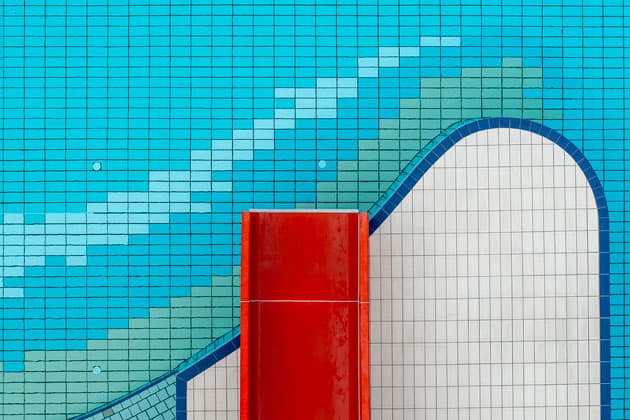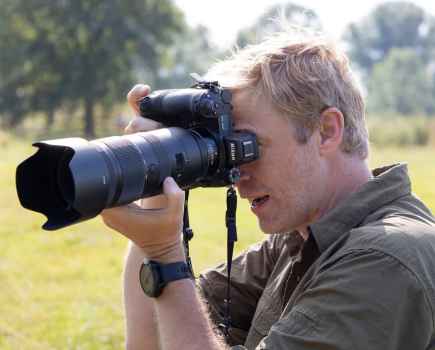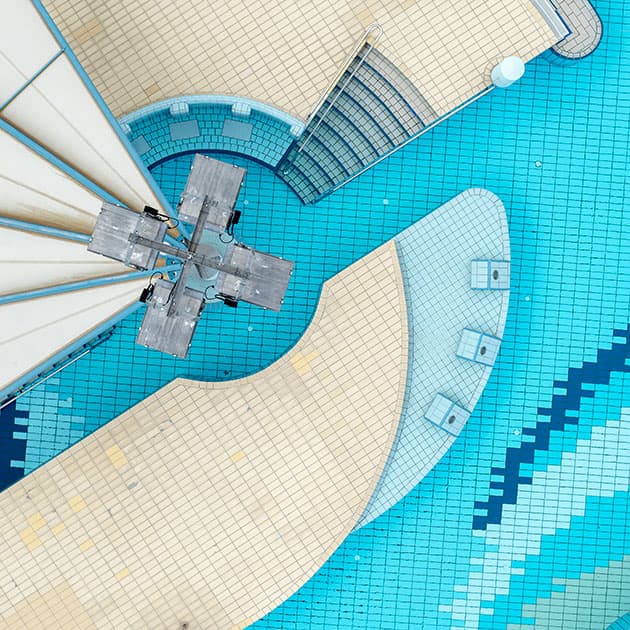
Images from the award-winning series, ‘Pools’. Credit: Stephan Zirwes
In 2016, German photographer Stephan Zirwes was happy to let us know he was awarded third place in the professional Architecture category at the Sony World Photography Awards with his series, Pools. In 2019, he was happy and proud to let us know he was awarded first place in the professional Architecture category at the Sony World Photography Awards with his series, Cut Outs – Pools.
Two massive highs for a photographer who has built a career by looking down. Stephan started taking aerial photographs at the turn of the millennium before drone technology became affordable and readily available, and there were not so many bird’s-eye shots.
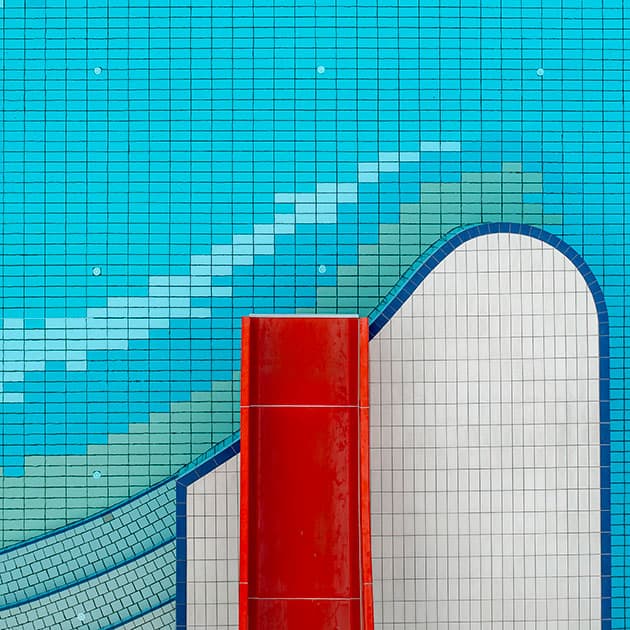
The photographs in this series were all taken with a drone. Credit: Stephan Zirwes
For the 2016 winning series, a response to the trend for private swimming pools, Stephan photographed from a helicopter with a Hasselblad 50MP in hand at a height of a few hundred metres. This allowed the privacy of the swimmers to be retained and leave them relatively undisturbed. In the edit suite, he would use Photoshop to remove distractions and expand the tiles to frame and draw attention to the pools. For his 2019 winning series, focusing on public pools, Stephan photographed using a drone at a height of only a few metres creating bold details.
Most of us have poignant memories of swimming pools. Teachers barking instructions with a flock of spittle. Swimming goggles that let in water. Too-tight swimming hats. Wrinkled skin on fingers. Space Invader crisps as an after-swim treat washed down with sparkling blackcurrant from a cheap plastic cup. The constant fear of verrucas, the discarded used plaster or nappy. The random erection, involuntary urination or skid mark on the towel.
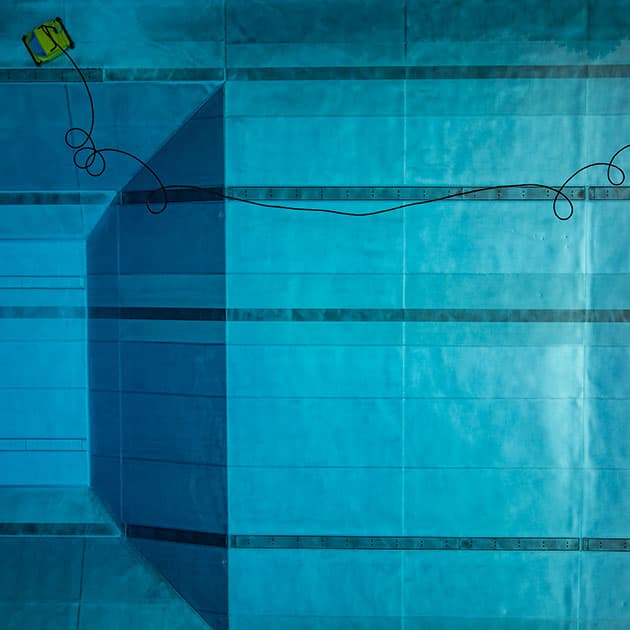
Before drones were commercially available he would hire a helicopter. Credit: Stephan Zirwes
Stephan’s photographs strip away nostalgia. There’s something democratic and sanitising about them, minimalist symbols that highlight the importance and beauty of water. The entire pool series, to some, is more than just a mosaic of pools and patterns. They are ordinary objects portrayed as something captivating and new. They aspire to raise questions about the role of water in industry and leisure at a time of global climate concern.
Stephan believes that the private pool is a cruel commodity that privatises a public asset for commercial exploitation. Clean water, being one of the world’s most needed resources, is wasted in some parts of the world as a tool for excessive entertainment. He consistently denounces the waste and privatisation of water.
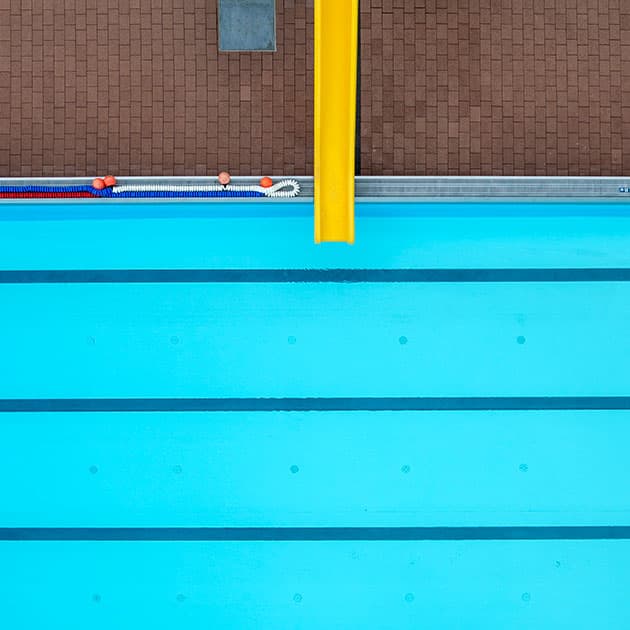
Credit: Stephan Zirwes
Stephan is not just about pools. He has produced aerial photography collections on water, snow and ice, football pitches, golf courses, airfields, crops, construction and vineyards among others. The work is deliberately two-dimensional, playing with reality. One of his first exhibitions, in Dubai 2008, was about the contrasts and crazy construction boom in the Gulf region, titled How Real is Reality? He continues to push the realms of reality with recent series such as Tractors, Aircrafts and Les Bateaux. Each object has minimum detail, fixed in a block of colour.
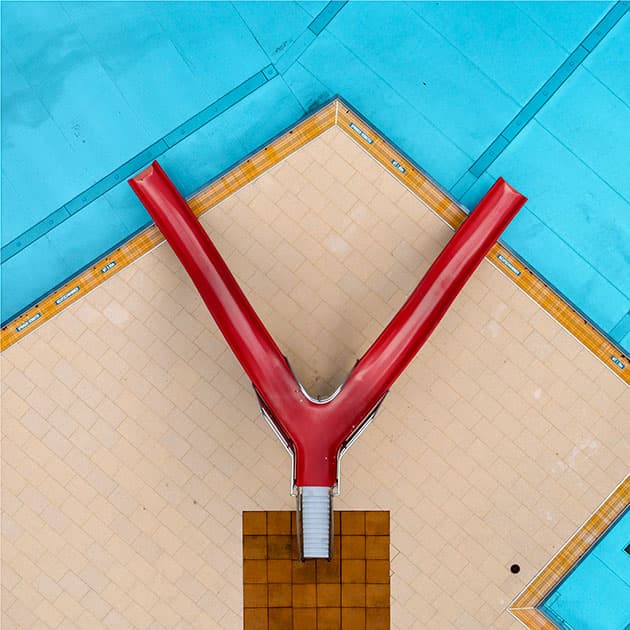
Credit: Stephan Zirwes
Philosophy
The Opiom Gallery, France, states that Stephan’s work ‘erases the physical borders between reality and fiction. Aesthetic and pure at first sight, his work reveals a deeper aspect to the gazing eye. Indeed, he also investigates political as well as social topics through the structures, contrasts and connections between the various components of his images. Always at the edge of abstraction, man happens to be at the centrepoint of his focus. Yet, his photos don’t tell a story but trigger an emotional vision.’ Well that’s the philosophical French for you.
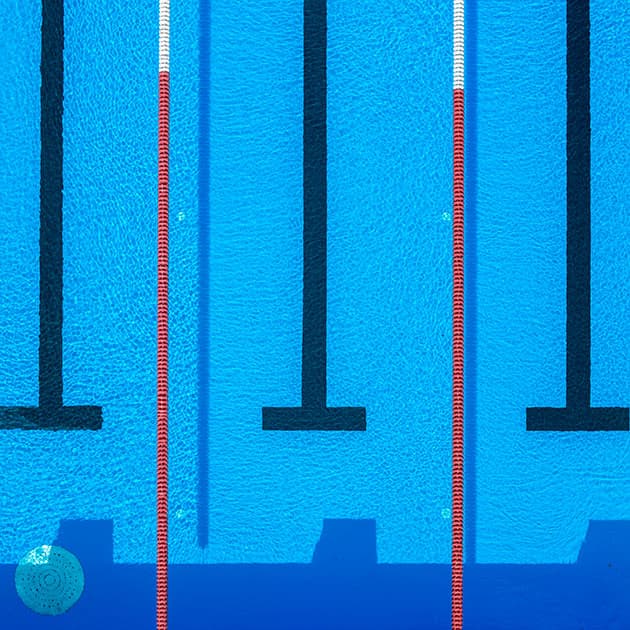
Credit: Stephan Zirwes
Reading this back through, sometimes rhetoric, theory and meaning can be over applied. Sometimes a photograph is just a satisfying collection of shapes and colours. What I do know is the work looks cracking on Instagram. I’d be happy to hang a grid of his Cut Outs – Pools in my summer house (if I had one). If there was a game show for photographers, it would be called Every Corner Counts and Stephan would be undefeated world champion – an orthogonal (I had to look it up) operator of perfection and precision. Did I mention he was German?

